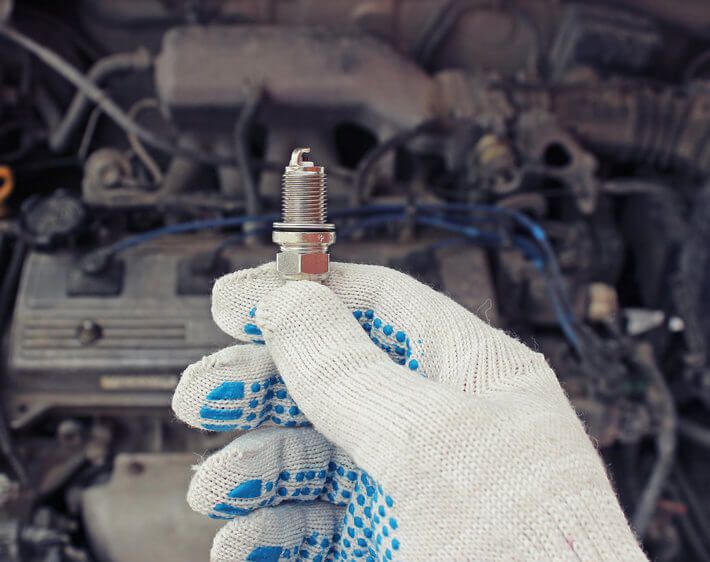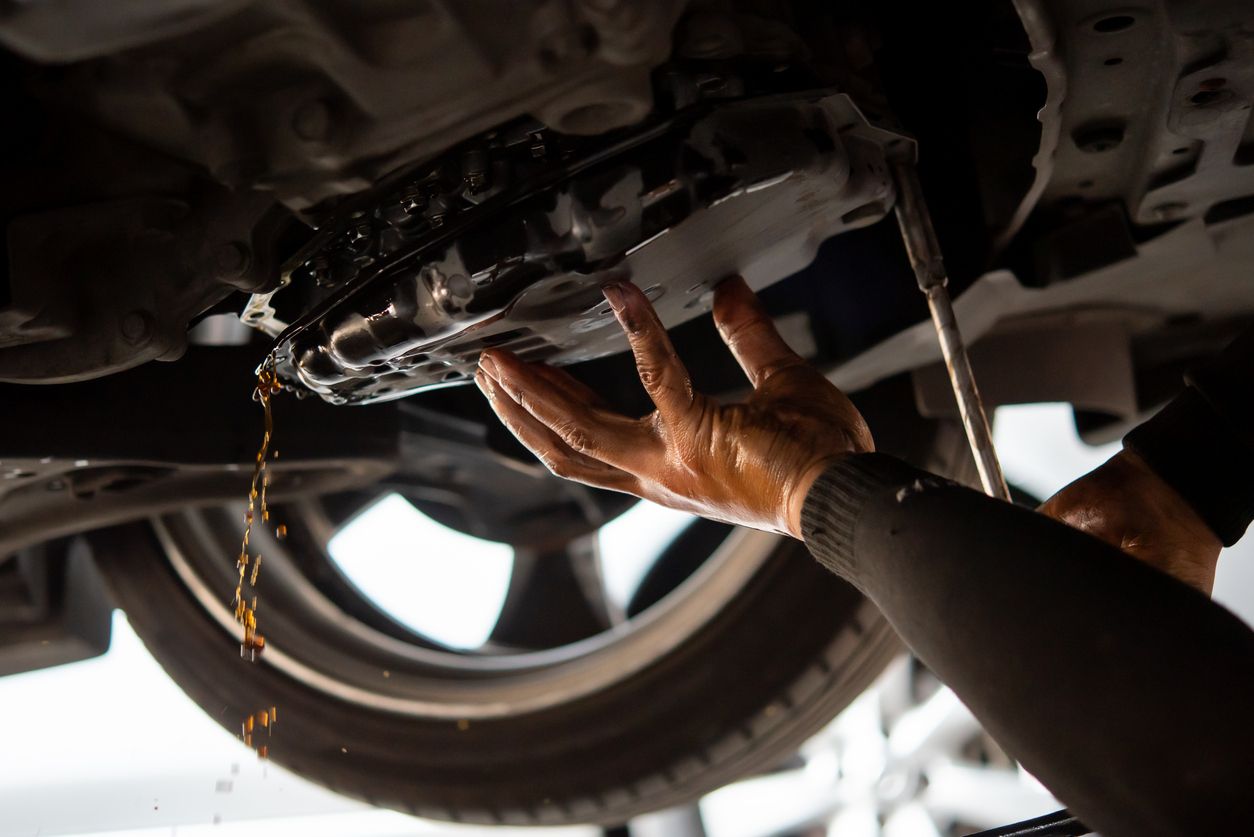Taking car care into your own hands can be empowering! But it may not always be the best thing to do. Learn what car care you can do at home and what you might want to leave to the professionals.
Car Care Services You Can Do at Home
When it comes to crafts, recipes, and life hacks, we love a good DIY tutorial. But when it comes to car care, our priority is to get your vehicle Fixed Right, Priced Right, Right on Time! That’s why we recommend against most at-home repairs. However, if you need a hands-on, at-home project to get you through the weekend, check out these car care tasks you can do at home.
1. Give Your Tires a Check-Up
Have you ever considered that your tires are the only part of your car that touches the road? Whether you’re on the highway during a long road trip or parked in the garage at work, your tires never take a break! Accordingly, giving them some TLC is a good idea.
Start by checking your tires’ inflation levels while they are cold, or haven't been driven on for three or more hours. Then, ensure they're the same as the recommendations in your owner’s manual. You can do this with a manual tire pressure gauge or using the automatic meter found on your local gas station’s air machine (or you can visit your nearest Firestone Complete Auto Care for a free tire pressure check). If you find that your tires are significantly over or under-inflated, add or release air accordingly.
Check your tire treads by performing a simple penny test once you ensure your tire pressure is up to par. Place a penny head-first into several tread grooves across the tire footprint. If the tread always covers the top of Lincoln’s head, your tire tread likely has plenty of life left in it. However, if you find Lincoln’s head sticks out of the tread in some grooves and out others, you may have uneven tread wear. Lastly, if Lincoln’s head sticks out throughout the footprint, it’s probably time for new tires!
2. Clean Your Car Battery
The battery helps start your car by turning chemical energy from battery acid into electrical energy, cranking your engine to life! With time and wear, gases from this process may leak, reacting with moisture and air in the atmosphere, oxidizing into nasty-looking gunk called corrosion!
Corrosion can disrupt the connection between your car battery’s terminals and the corresponding battery cables. Eventually, an improper connection can lead to problems powering your car’s engine and electronic accessories such as the radio, heated seats, and navigation systems.
Luckily, cleaning corrosion off your battery terminals is an easy car care task that you can do at home. Note that disconnecting the battery without a memory saver can cause loss of power to components like the radio and navigation system and can lead to drivability issues. Beyond that, you’ll only need protective gloves, safety goggles, a wire brush, baking soda, water, a rag, and petroleum jelly.
Note: Refer to your owner's manual for specific information related to your vehicle before disconnecting the battery.
- Let your car cool down on a flat, even surface.
- Disconnect the battery cables from the terminals — starting with the negative one first.
- Create a corrosion-cleaning paste by mixing baking soda and water in a plastic cup.
- Dip your brush into the baking soda paste and scrub any grimy corrosion away.
- Wipe the surface clean with a rag.
- Dab petroleum jelly onto the battery terminals. Avoid being overly generous with this application, as too much can cause a poor connection between the battery post and terminals.
- Reattach the cables to the corresponding battery posts — starting with the positive terminal first.
Car Care Services You Should Avoid Doing at Home
Though certain DIY sites will lead you to believe you can do hundreds of car repairs yourself, that doesn’t mean you should! Caring for your 3,000+ pound vehicle is serious business, and without the right expertise, you could hurt yourself or the car while performing DIY services. Plus, if you happen to make an improper diagnosis or repair, it could lead to expensive (or dangerous) issues down the road!
1. Steer Clear of DIY Brake Repairs
Thinking about changing your brake pads or attempting to do a brake fluid exchange at home? Think again! Your car’s brakes rely on a complex system of parts, fluid, sensors, and accessories — and if any of the components are improperly serviced or repaired, your car may lose its vital stopping power — and no amount of horsepower can make up for that!
Additionally, most brake repair services involve raising the vehicle on industrial-grade lifts. Even if you’re the handiest DIYer, you’re unlikely to have a car lift at your disposal, and if you do, operating it with improper training or supervision can put you and your car’s safety at risk!
2. Avoid At-Home Oil Changes
Getting regular oil changes is one of the most important car care services out there, but doing it at home can be a disservice to your engine and your wallet. First off, DIY oil changes can lead to costly mistakes, such as using the wrong kind of oil or failing to replace the filter. Ultimately, such errors can lead to lackluster oil performance, engine problems, or even engine failure!
Additionally, changing the oil may require various specialized tools and equipment. You may end up spending more money gathering all the materials for a DIY oil change than you would by getting it done by a car care expert near you.
When in Doubt, Go With The Pros
Your car’s job is to get you to your destination safely and efficiently, and our job is to help your car do just that. Although the pros of DIY-ing your car care services may seem penny-wise, the cons can lead to pound foolish results. Trust the pros at Firestone Complete Auto Care! Our expert technicians are ready to handle your vehicle's maintenance needs, from the engine to the exhaust.



